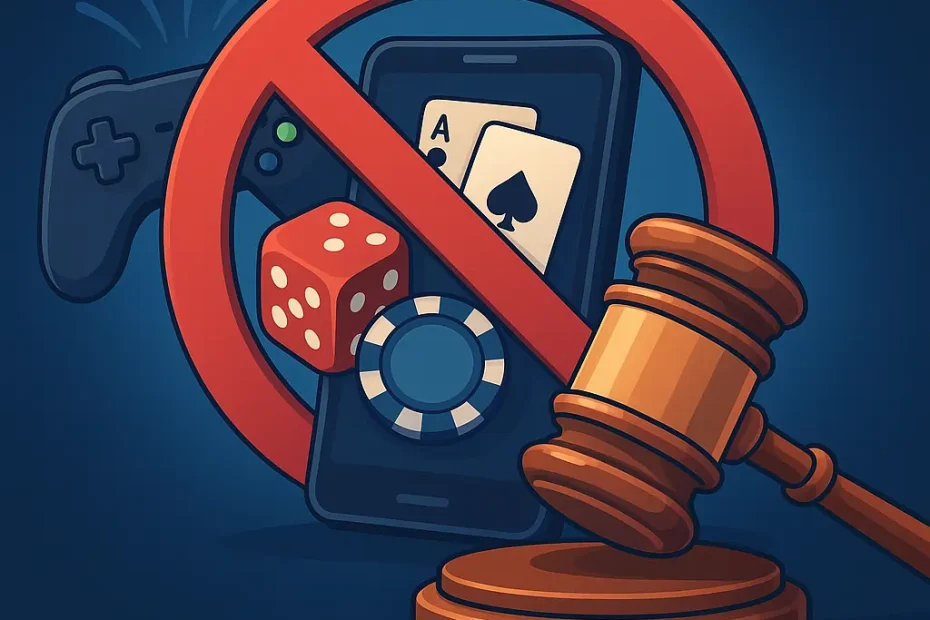Introduction: A Landmark Move
The Indian government has passed the Online Gaming Bill, 2025, which is currently awaiting the President’s approval before it officially becomes law. This move is expected to bring sweeping changes to the country’s gaming industry, especially for platforms that thrive on money-based games. While the Bill promises to protect players, it also raises questions about the future of thousands of jobs and billions in revenue.
Why Was This Law Needed?
Online money games have become hugely popular in India in recent years, offering the temptation of quick cash and easy winnings. But behind the excitement lies a darker reality. Families have lost their hard-earned savings, youngsters have developed severe addictions, and in some tragic cases, people have taken extreme steps due to financial distress.
The government revealed that nearly 45 crore Indians have been affected by these games, with total losses crossing ₹20,000 crore. Faced with such alarming consequences, lawmakers decided it was essential to bring in strict regulations to safeguard citizens.
What the Bill Allows and Prohibits
The Bill makes a clear distinction between harmful and safe forms of gaming.
- Banned completely: All money-based online games, whether they depend on luck, skill, or both. Even advertisements for such games will be illegal, and banks or payment apps cannot process transactions linked to these platforms.
- Encouraged: E-sports and educational or social games. The government wants to formally recognise e-sports as a competitive sport, build training academies, and organise official tournaments. Similarly, safe games that focus on education, culture, or skills will be promoted as healthy digital alternatives.
The Impact on India’s Gaming Industry
This decision will have a massive effect on India’s gaming market, which is one of the fastest-growing in the world. In 2024 alone, money-based games generated nearly $2.4 billion, contributing around 63% of the industry’s revenue. With a sudden ban, companies fear heavy losses and estimate that nearly two lakh jobs may be at risk.
However, the government argues that while some traditional roles may disappear, new opportunities will be created in the booming e-sports sector. India could emerge as a global hub for competitive gaming, skill development, and digital innovation.
Strict Rules and Tough Punishments
The Bill doesn’t just stop at banning money games—it also lays down harsh penalties for violators. Running or promoting money-based platforms can lead to three years in jail and fines up to ₹1 crore. Repeat offenders may face five years of imprisonment and fines up to ₹2 crore. Authorities classify these offences as non-bailable, which means anyone caught breaking the law will find it difficult to get bail.
A Step Towards Safer Digital Spaces
At its heart, this Bill is about protection rather than restriction. By banning harmful games and boosting e-sports and educational platforms, the government aims to build safer digital spaces for young and old alike. With the World Health Organization already recognising gaming addiction as a health disorder, India’s new law echoes a global effort to curb unhealthy gaming habits while encouraging creativity and healthy competition.
Conclusion: Challenge and Opportunity
The Online Gaming Bill, 2025 represents both challenge and opportunity. While it threatens the survival of money-based gaming companies and could reduce government tax revenues, it also paves the way for a new era of safe, competitive, and educational gaming. The success of this law will depend on how effectively we implement it and how quickly both companies and players adapt to this new digital reality.
